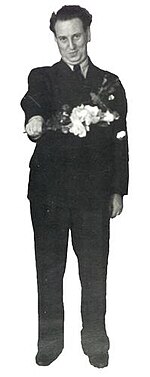
Camp Westerbork, also known as Westerbork transit camp, was a Nazi transit camp in the province of Drenthe in the Northeastern Netherlands, during World War II. It was located in the municipality of Westerbork, current-day Midden-Drenthe. Camp Westerbork was used as a staging location for sending Jews to concentration camps elsewhere.
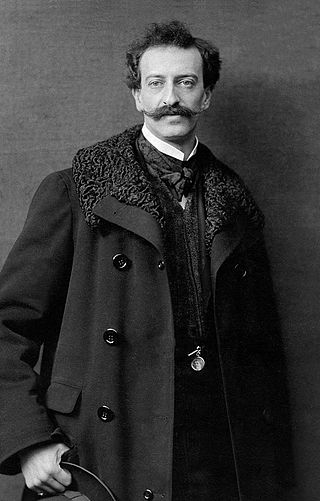
Oscar Nathan Straus was a Viennese composer of operettas, film scores, and songs. He also wrote about 500 cabaret songs, chamber music, and orchestral and choral works. His original name was actually Strauss, but for professional purposes he deliberately omitted the final 's'. He wished not to be associated with the musical Strauss family of Vienna. However, he did follow the advice of Johann Strauss II in 1898 about abandoning the prospective lure of writing waltzes for the more lucrative business of writing for the theatre.

Kurt Gerron was a German Jewish actor and film director. He and his wife, Olga, were murdered in the Holocaust.

Karl Farkas was an Austrian actor and cabaret performer.
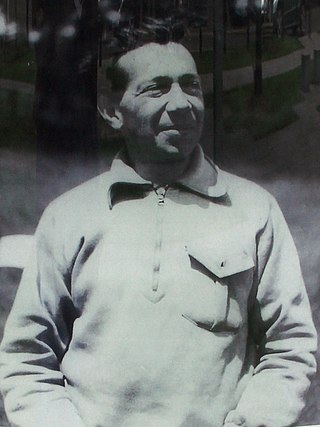
Friedrich Hollaender was a German film composer and author.

Ludwig Stössel was an actor born in Lockenhaus, now Austria, then Hungary. He was one of many Jewish actors and actresses who were forced to flee Germany when the Nazis came to power in 1933.

Franz Friedrich "Fritz" Grünbaum was an Austrian Jewish cabaret artist, operetta and popular song writer, actor, and master of ceremonies whose art collection was looted by Nazis before he was murdered in the Holocaust.
Hans Emil Thimig, pseudonym: Hans Werner was an Austrian actor, film director, and stage director.

Rudolf Nelson was a German composer of hit songs, film music, operetta and vaudeville, and the founder and director of the Nelson Revue, a significant cabaret troupe on the 1930s Berlin nightlife scene.
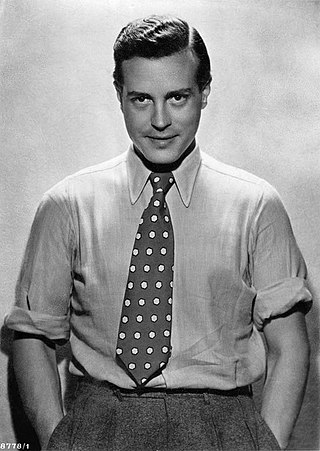
Wolf Albach-Retty was an Austrian actor. He was the father of Romy Schneider with the German actress Magda Schneider.
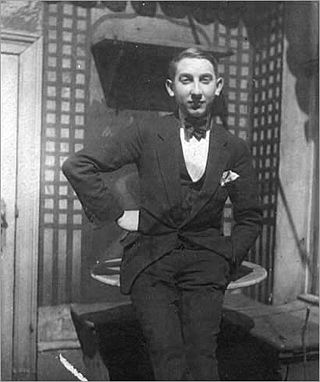
Mischa Spoliansky was a Russian-born composer who made his name writing cabaret and revue songs in the Weimar Republic of the 1920s and early 1930s, before he was forced to emigrate to London in 1933 when Hitler rose to power. He stayed in Britain for the rest of his life, re-inventing himself as a composer of film scores.

Max Hansen , also known as 'The Little Caruso', was a Danish singer, cabaret artist, actor, and comedian.

Wolfgang Zilzer was a German-American stage and film actor, often under the stage name Paul Andor.

Lisl Frank was a Czech Jewish singer, dancer and actress. She achieved success before World War II.
Kabarett is satirical revue, a form of cabaret which developed in France by Rodolphe Salis in 1881 as the cabaret artistique. It was named Le Chat Noir and was centered on political events and satire. It later inspired creation of Kabarett venues in Germany from 1901, with the creation of Berlin's Überbrettl venue and in Austria with the creation of the Jung-Wiener Theater zum lieben Augustin housed in the Theater an der Wien. By the Weimar era in the mid-1920s it was characterized by political satire and gallows humor. It shared the characteristic atmosphere of intimacy with the French cabaret from which it was imported, but the gallows humor was a distinct German aspect.

Paul Hörbiger was an Austrian theatre and film actor.

La Jana was an Austro-German dancer and actress.
Franz Schulz was a playwright and screenwriter who worked from 1920 through 1956.

Otto Wallburg was a German actor and Kabarett performer. He was a prolific film actor during the late silent and early sound era.

Once I Loved a Girl in Vienna is a 1931 German comedy film directed by Erich Schönfelder and starring Werner Fuetterer, Gretl Theimer and Ernö Verebes.
